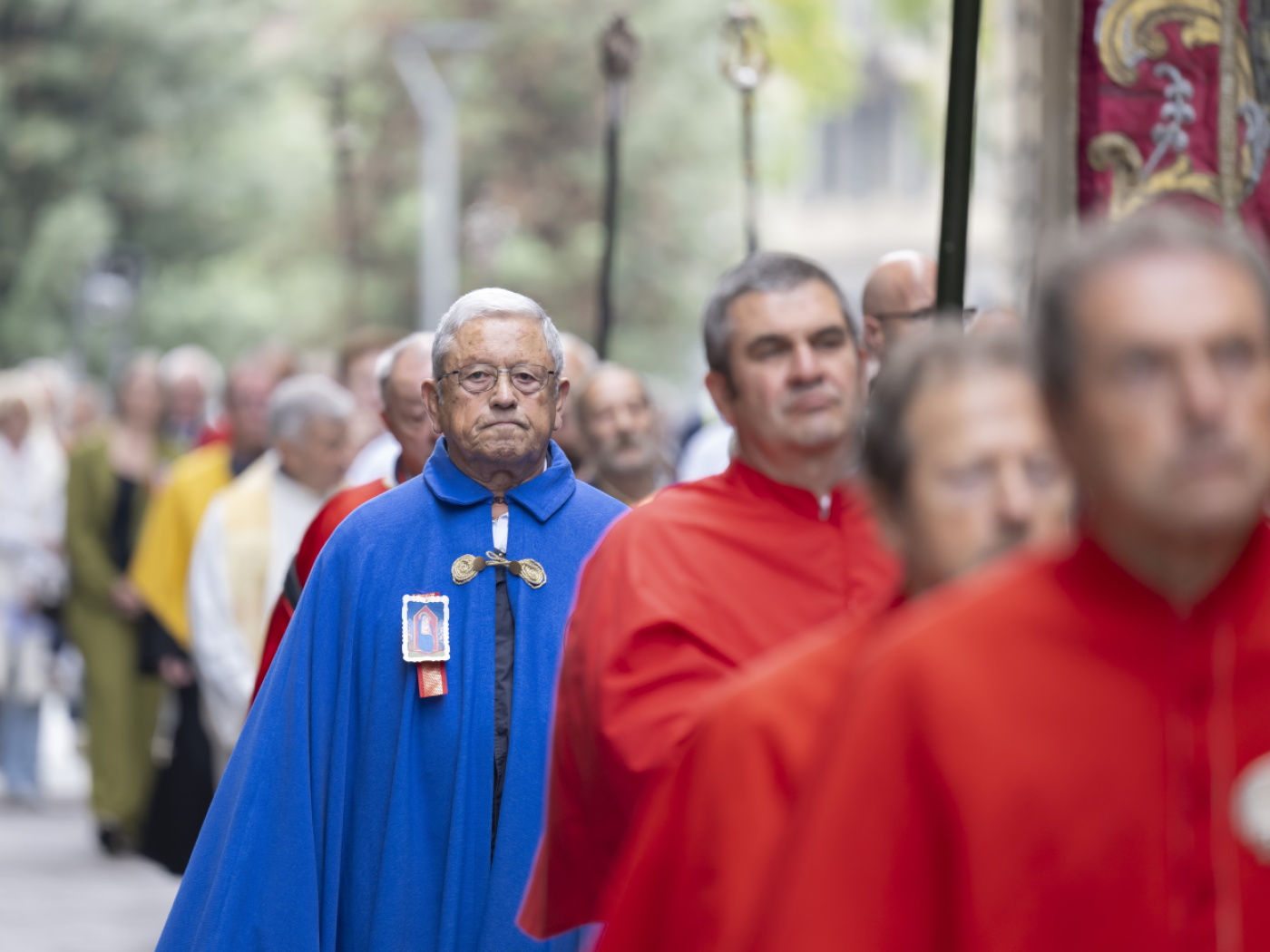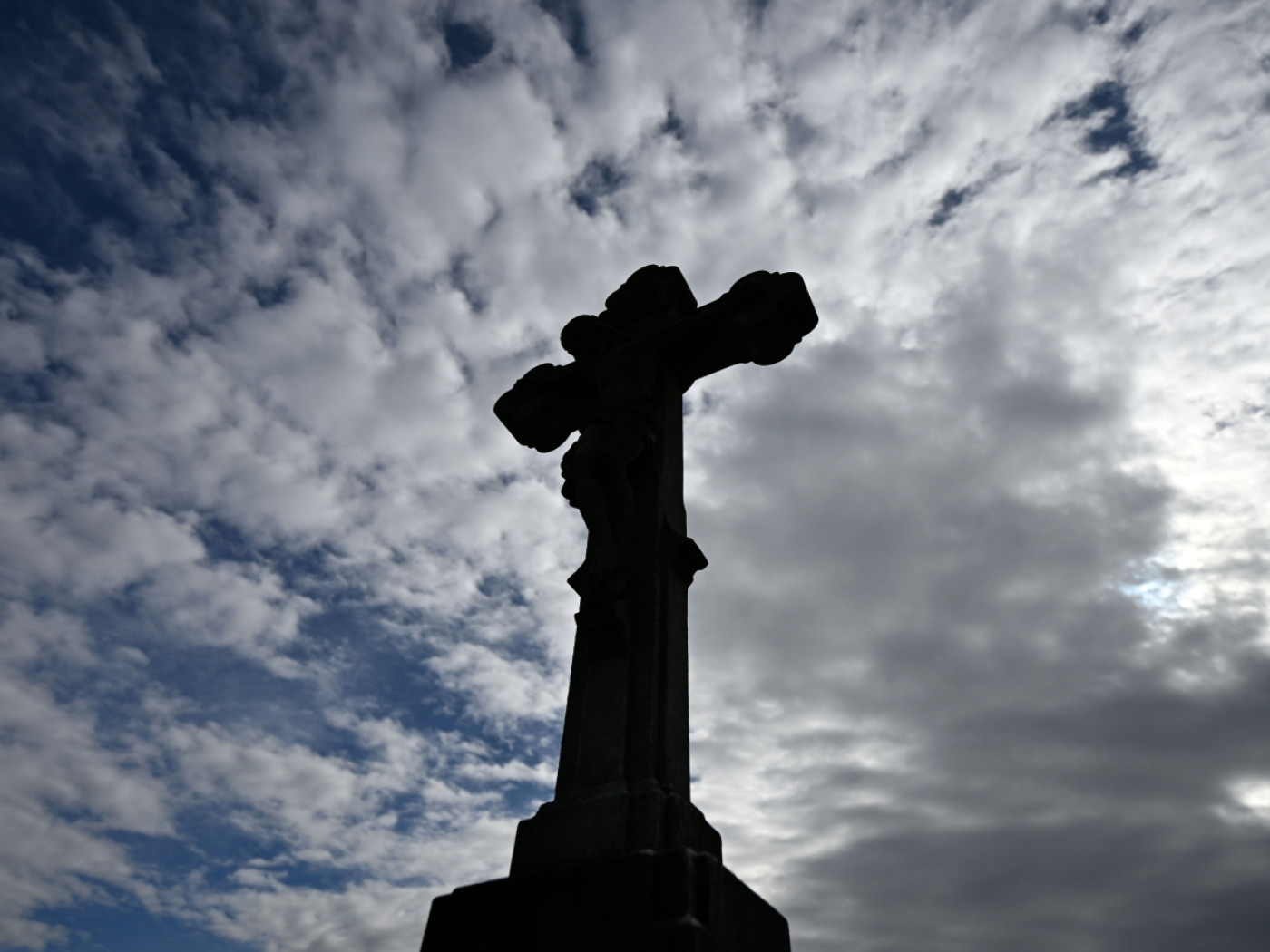
Jubilee of Swiss brotherhoods gathers in Lugano

Catholic brotherhoods from all over Switzerland gathered in Lugano for the first time in their centuries-long history.
+ Get the most important news from Switzerland in your inbox
Under the patronage of the Swiss Bishops’ Conference, they celebrated the ‘Jubilee of the Brotherhoods’ to mark the Holy Year.
Some 40 brotherhoods from German-speaking, French-speaking and Romansh-speaking Switzerland, as well as from Italy and France, took part in this grand premiere, Jubilee spokesman Davide Adamoli told Keystone-ATS on Sunday.
+ Why Switzerland is losing its religion
The event began with a mass celebrated in Saint-Laurent Cathedral by the Bishop of Lugano, Mgr Alain de Raemy. Accompanied by the Philharmonic Orchestra of Stabio and the Militia in Aquila costume, the brotherhoods, carrying their banners, then headed in procession towards the city centre and the church of San Rocco.
The Diocese of Lugano is the headquarters of the Union des Confréries (UCDL), which groups together most of the 70 associations active in Switzerland. It was also in Lugano, in 2020, that the ‘Pan-European Forum of Brotherhoods’ was founded The forum currently has 28,000 brotherhoods with a total of some six million members.
Switzerland has around 200 active Catholic brotherhoods. Apart from Ticino, they are generally spread across the cantons of Uri, Nidwalden, Obwalden, Schwyz, Lucerne, Solothurn, Aargau, Fribourg and Valais, but there are also some in other cantons. The oldest is the Immaculate Conception in Romont (FR), founded in 1336.
The most recent are those founded by Peruvian immigrants in Zurich, Geneva and Lausanne. They are mainly dedicated to public worship, prayers for the dead and charity in the service of the community.

More
Significantly fewer Swiss leaving Catholic Church
Translated from French with DeepL/mga
We select the most relevant news for an international audience and use automatic translation tools to translate them into English. A journalist then reviews the translation for clarity and accuracy before publication.
Providing you with automatically translated news gives us the time to write more in-depth articles. The news stories we select have been written and carefully fact-checked by an external editorial team from news agencies such as Bloomberg or Keystone.
If you have any questions about how we work, write to us at english@swissinfo.ch.

In compliance with the JTI standards
More: SWI swissinfo.ch certified by the Journalism Trust Initiative




























You can find an overview of ongoing debates with our journalists here . Please join us!
If you want to start a conversation about a topic raised in this article or want to report factual errors, email us at english@swissinfo.ch.